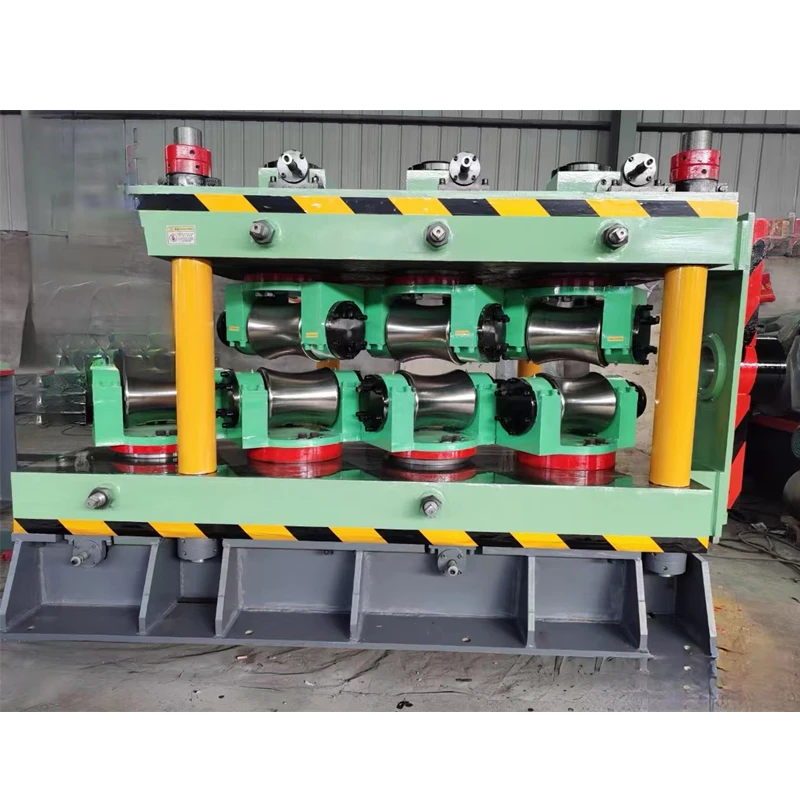Design and Functionality of Channel Production Machines in Modern Manufacturing
The Channel Forming Machine Revolutionizing Metal Fabrication
In the world of metal fabrication, efficiency, accuracy, and versatility are paramount to maintaining competitiveness in the market. Among the myriad of machinery that fulfill various fabrication needs, the channel forming machine stands out as a critical tool for shaping metal into useful structures. This article delves into the working principles, applications, and advantages of the channel forming machine, highlighting its importance in the manufacturing industry.
Understanding the Channel Forming Machine
A channel forming machine is specialized equipment designed to produce channel sections from metal sheets or coils. These machines utilize advanced techniques such as roll forming, which is a continuous bending operation where metal is passed through a series of rollers to achieve the desired shape. Typically, the raw materials fed into the machine are either hot-rolled or cold-rolled steel, aluminum, or other metal alloys, ensuring a range of applications across various industries.
The fundamental component of a channel forming machine is its series of rollers. Each roller has a specific profile that sequentially shapes the metal as it passes through. The process begins with a flat sheet that is gradually transformed into a channel shape, characterized by a vertical web and two horizontal flanges. The precision of the roll forming process allows for consistent dimensions and high-quality surface finishes, essential in any fabrication project.
Applications of Channel Forming Machines
Channel sections produced by these machines have widespread applications, primarily in construction, automotive, and manufacturing industries. In construction, channel sections serve as structural beams, providing support and stability in buildings, bridges, and various infrastructures. Their inherent strength and durability make them a preferred choice for load-bearing applications.
In the automotive industry, channel forming machines contribute to the production of vehicle components. Lightweight yet robust channel sections are used in framing, chassis construction, and other crucial structures that require both strength and reduced weight for enhanced fuel efficiency.
channel forming machine

Moreover, the flexibility of channel forming machines allows manufacturers to produce custom profiles tailored to specific needs, making them invaluable in various industrial applications. From HVAC systems to agricultural equipment, channel sections play a vital role in creating functional and structural components.
Advantages of Channel Forming Machines
The adoption of channel forming machines offers several advantages that enhance productivity and cost-effectiveness in metal fabrication. Firstly, the roll forming process is highly efficient, capable of producing large quantities of channel sections in a relatively short period. This efficiency translates into reduced production costs, allowing companies to meet market demands promptly.
Secondly, the precision offered by channel forming machines ensures high-quality outputs with minimal waste. The ability to maintain consistent dimensions and surface finishes decreases the need for secondary operations, streamlining the manufacturing process.
Additionally, the machines’ versatility allows for the production of various channel profiles, accommodating different specifications and customer requirements. This adaptability enables manufacturers to respond quickly to changing market demands without significant investments in new tooling or equipment.
Conclusion
The channel forming machine is a crucial player in the metal fabrication arena, offering efficiency, precision, and versatility. Its innovative design and operational capabilities have transformed the way manufacturers produce channel sections, catering to a wide array of industries from construction to automotive. As technology continues to advance, we can expect further improvements in the functionality and applications of channel forming machines, solidifying their role in the future of manufacturing. The continuous evolution of these machines will not only enhance production processes but also drive innovation in material use and fabrication methods, ensuring that the industry remains resilient and competitive in a rapidly changing world.
-
High Frequency Straight Seam Welded Pipe Production Line|BzZhou Xinghua|Precision Welding&EfficiencyNewsJul.30,2025
-
High Frequency Straight Seam Welded Pipe Production Line - BzZhou Xinghua|Precision Engineering&EfficiencyNewsJul.30,2025
-
High-Frequency Straight Seam Welded Pipe Production Line-BzZhou Xinghua Machinery Equipment Manufacturing Co., LTD.NewsJul.30,2025
-
High-Frequency Straight Seam Welded Pipe Production Line-BzZhou Xinghua Machinery Equipment Manufacturing Co., LTD.|Precision Manufacturing, High EfficiencyNewsJul.30,2025
-
High Frequency Straight Seam Welded Pipe Production Line-BzZhou Xinghua Machinery Equipment Manufacturing Co., LTD.|Precision Steel Pipe Manufacturing&Industrial EfficiencyNewsJul.29,2025
-
High-Frequency Straight Seam Welded Pipe Production Line-BzZhou Xinghua Machinery Equipment Manufacturing Co., LTD.|Precision Steel Pipe Manufacturing&Industrial EfficiencyNewsJul.29,2025


